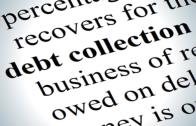If you are ready to stop the harassing collection calls and get relief from your debt, negotiating a settlement with your creditors can help. However, there are also numerous common mistakes that you will want to avoid to ensure matters do not get worse for you.
Failing To Understand The Type Of Debt
The two main types of debt are secured and unsecured debts. A secured creditor has an asset pledged as collateral to it. The two most common examples of secured debts are a mortgage loan and car loan. If you fail to pay a secured loan, the creditor has the right to seize the collateral.
An unsecured creditor has extended a loan to you without having an asset pledged as collateral. The most common types of unsecured debt are credit cards and medical bills. It is important to understand that even if you used a credit card to purchase an asset (such as using a Home Depot card to buy a washer and dryer), an unsecured creditor cannot repossess the merchandise. If you understand what type of creditor you are dealing with, you won’t be tricked if the collector threatens to seize the merchandise.
Not Knowing The Creditor’s Strengths And Weaknesses
A secured creditor’s strongest tool is its ability to repossess the asset the consumer pledged as collateral if the creditor is not paid. However, all creditors are subject to collection laws which can limit their collection tactics. Further, it is expensive for creditors to file repossession lawsuits if they are unable to locate the collateral.
Unsecured creditors can use legal collection efforts including demand letters, telephone calls, and other strategies that often convince a borrower to pay the debt. They can also file a lawsuit to collect the debt. If they obtain a judgment against you, they can garnish your paycheck or bank account. Similar to secured creditors, unsecured creditors are subject to collection laws and collection lawsuits can be expensive. Unsecured creditors do not have the leverage of seizing assets and they stand to recover nothing if you file for bankruptcy and discharge the debt.

Contact our California Debtor Protection Law Firm with your questions, comments, and concerns, or for a free consultation. Speak to a CA credit card lawsuit and collection harassment lawyer at our firm today.

